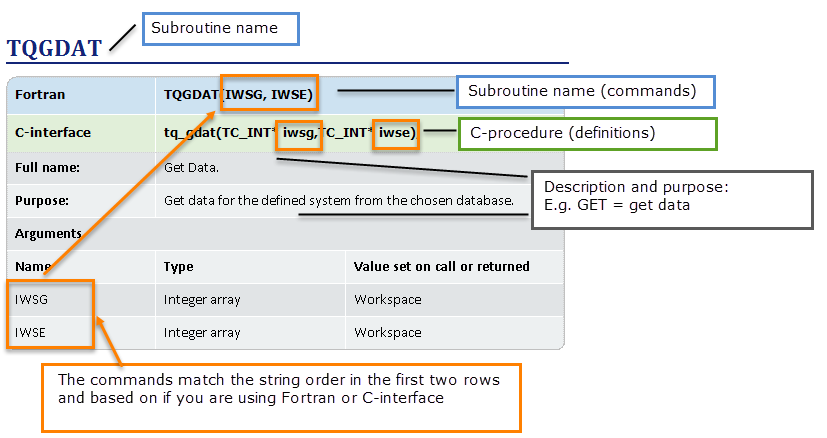TQIPS_READ_IPS_DATA_FROM_FILE
| Fortran |
TQIPS_READ_IPS_DATA_FROM_FILE(FILENAME, MEMORY_FRACTION, IERR, IWSG, IWSE) |
|
|---|---|---|
| C-interface |
tq_ips_read_ips_data_from_file(TC_STRING filename, TC_FLOAT* memory_fraction, TC_INT* ierr, TC_INT* iwsg, TC_INT* iwse) |
|
|
Full name: |
Read interpolation scheme data from file. |
|
|
Purpose: |
To read from file interpolation scheme data that has been saved previously with routine tqips_write_ips_data_to_file. |
|
|
Comments: |
If memory_fraction has a value smaller than zero the amount of allocated memory will be determined by the value read from file. If memory_fraction is larger than zero it will be interpreted in the same way as argument RMEMFR of routine tqips_init_branch. |
|
|
Arguments |
||
|
Name |
Type |
Value set on call or returned |
|
FILENAM |
Character*256 |
The name of the file to be read |
|
MEMORY_FRACTION |
double precision |
See comment |
|
IERR |
Integer |
Returns the error code |
|
IWSG |
Integer array |
Workspace |
|
IWSE |
Integer array |
Workspace |
Note the following conventions to distinguish between the programming languages.
- Routines starting with TQXXX, for example, TQGDAT, are in the Fortran interface
- Routines starting with tq_xxxx, for example tq_gdat, are in the C-interface.
- In Fortran, all routines are subroutines and do not return any values except where explicitly declared as functions.
- All the C procedures are declared as void and do not return any values except where explicitly otherwise declared.
An example of how to read the subroutine definitions.
